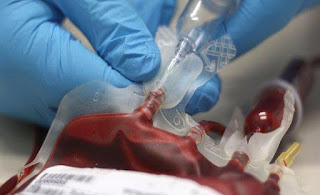Unlocking the Potential: Recombinant Erythropoietin and Red Blood Cell Production
Introduction:
In the realm of medical advancements, the discovery of recombinant erythropoietin (rEPO) stands as a significant milestone. Erythropoietin, a hormone naturally produced by the kidneys, plays a crucial role in stimulating the production of red blood cells (RBCs). Recombinant erythropoietin is a bioengineered version of this hormone, revolutionizing the treatment of various conditions, especially those involving anemia. Let's delve into the potential and impact of this groundbreaking development.
The Science Behind Recombinant Erythropoietin:
Recombinant erythropoietin is created through a process called genetic engineering, wherein human DNA is combined with other organisms to produce a synthetic version of the hormone. This engineered hormone closely mimics the natural erythropoietin, allowing it to effectively bind to specific receptors in the bone marrow, stimulating the production of RBCs.
Treating Anemia and Beyond:
One of the most significant applications of recombinant erythropoietin lies in the treatment of anemia. Anemia, a condition characterized by a decrease in the number of RBCs or hemoglobin levels, can be caused by various factors, such as chronic kidney disease, cancer, or chemotherapy. rEPO injections have become a lifeline for patients suffering from anemia, as it stimulates the production of RBCs, improving oxygen transport and alleviating fatigue and weakness.
Beyond anemia, recombinant erythropoietin has shown potential in treating other conditions, such as reducing the need for blood transfusions in patients undergoing major surgeries or managing anemia in premature infants. Moreover, ongoing research explores its potential in conditions like traumatic brain injuries and neurodegenerative disorders.
Controversies and Ethical Considerations:
While recombinant erythropoietin has revolutionized patient care, it has not been without controversy. In sports, some athletes have abused erythropoietin to enhance their performance, leading to ethical debates and stringent anti-doping measures. Striking the right balance between its medical benefits and potential misuse remains an ongoing challenge for sports organizations and medical professionals.
Conclusion:
The development of recombinant erythropoietin has opened new avenues in the field of medicine, transforming the way we treat anemia and other related conditions. Its ability to boost red blood cell production has significantly improved the quality of life for patients with chronic illnesses. However, as with any medical breakthrough, ethical considerations and responsible usage are vital to ensure its benefits are harnessed for the betterment of humanity. With continued research and advancements, recombinant erythropoietin holds the promise of unlocking even more potential in the years to come.




Comments
Post a Comment